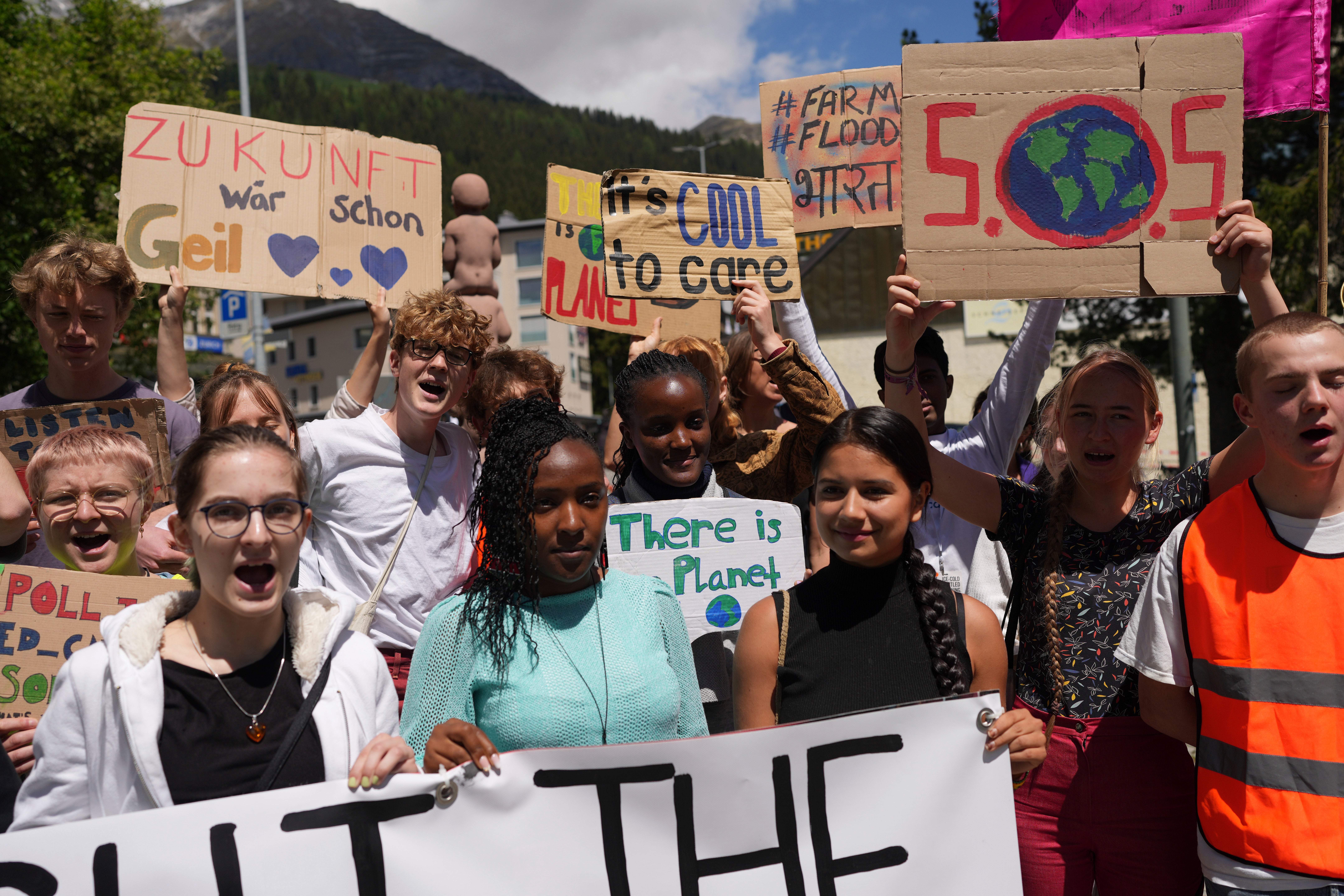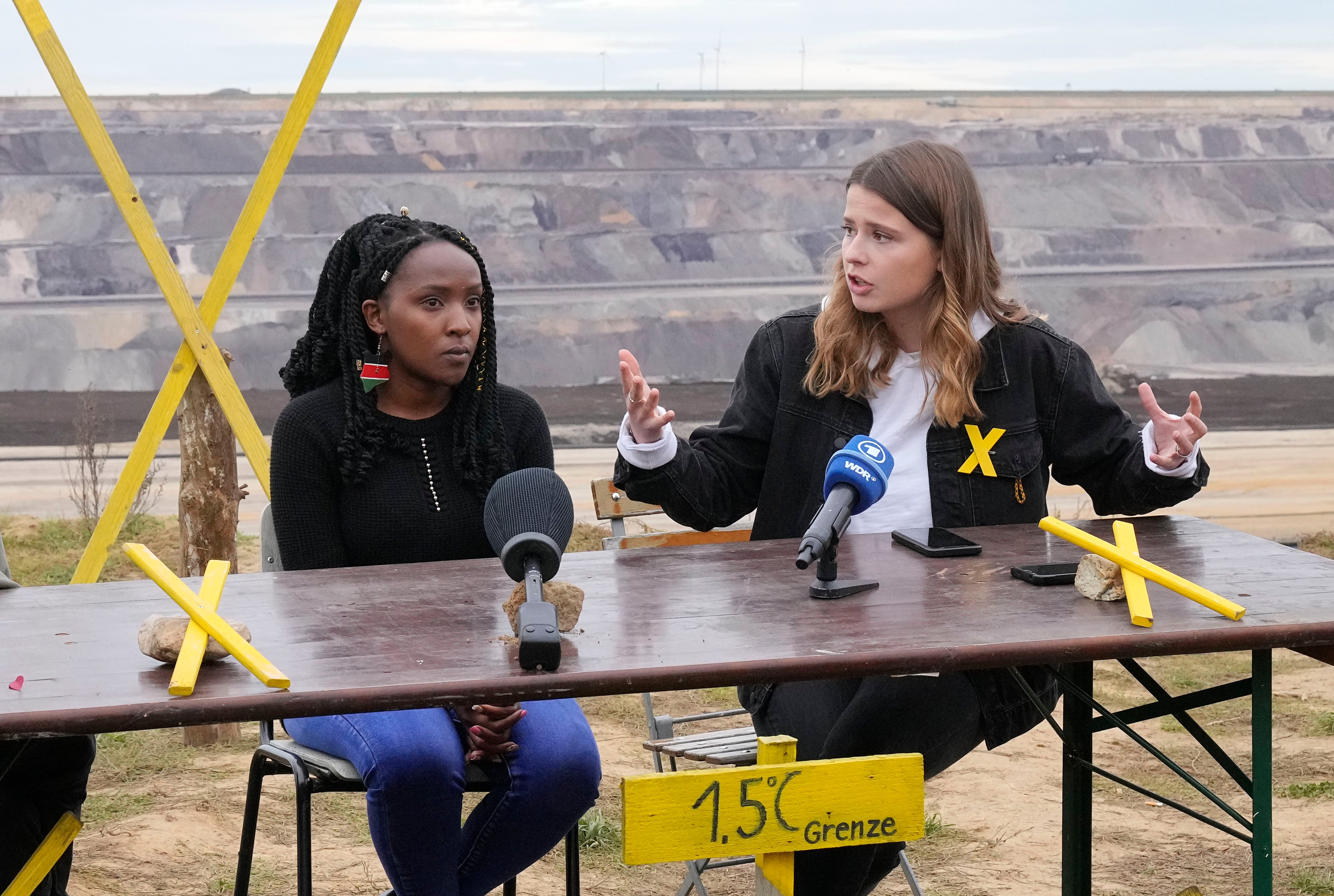At Cop26, I asked world leaders to open their hearts – now they must open their eyes
Cop27: The humanitarian crisis I described to them last year has only worsened, writes Elizabeth Wathuti


For many years, the warnings about climate inaction have been crystal clear. But many leaders worldwide have yet to take the climate crisis seriously. The response should have been faster, and at the scale and speed we know is needed.
Instead, frontline communities like mine are already bearing the biggest burden despite having done the least to cause the problem. Simply put, they are paying the price of climate inaction. Climate justice means facing up to this and not abandoning frontline communities to their fate.
In a speech I delivered to world leaders at Cop26 in Glasgow, I asked them to open their hearts before entering the negotiations. I appealed to them to act in solidarity with communities at the front lines of the climate crisis.
And as we now prepare to welcome them to the African continent a year later, the humanitarian crisis I described to them last year has only worsened as the Horn of Africa remains gripped by prolonged drought and West and Central Africa by devastating floods. Political leaders only need to open their eyes to see the devastation that climate inaction is already bringing to my people.
The one priority of Cop27 must be for leaders to ensure that finance is mobilised urgently through a loss and damage finance facility to help frontline communities cope with the dire reality the climate crisis has positioned them in.
We are in an era of loss and damage and the recent Intergovernmental Panel on Climate Change (IPCC) report on climate impacts showed that our planet is facing unprecedented consequences caused by climate change. For the African continent, this is a daily reality for millions. For instance, the prolonged climate-induced drought hitting the Horn of Africa is the longest in 40 years, and over 50 million people are suffering from acute food insecurity this year.
The numbers and reports speak for themselves, but I have also spent time with frontline communities in my home country Kenya, to listen to their stories and understand their experiences. The crops have failed, livestock is dying, there is no food and water, farmers are stranded. It is heartbreaking.
In Wajir county, I met with communities suffering from the interconnected climate, nature, and food crises sweeping across Africa. I saw how the roads were lined with shrivelled carcasses of decimated livestock and wildlife. The people of Wajir depend on livestock for 80 per cent of their livelihood. The drought has left them in a vicious circle where families can no longer afford to keep their daughters in school or feed their children.
Our natural ecosystems – our life support systems – have also been pushed beyond breaking point, and the people tell me that the only thing left to lose is hope.

Yet our biggest economies with the highest historical emissions are not taking the rapid action needed to support the people most vulnerable to climate disasters. At Cop27, leaders must demonstrate that they care about the people and their lives and livelihoods through the capacity, resources, and power at their disposal to respond to the climate crisis with urgency.
Delivering on loss and damage finance will be the litmus test for Cop27, as UN secretary-general Antonio Guterres says. For justice to have a chance, rapid action cannot wait.
Justice is not forcing countries into deeper debt by climate disasters they did not cause. Justice means delivering on promises that have been made and not met. Justice includes drastic emission cuts, leaving fossil fuels in the ground and massively protecting ecosystems.
Natural resources have continued to be valued and exploited for the economic profits they bring, instead of their capacity to act as a buffer against extreme weather events, keeping the Earth balanced and absorbing carbon emissions. Today, we are witnessing the destruction of forests happening faster than they can restore themselves all across our planet. This is not the way forward.
We cannot deliver the Paris Agreement and stay within the limit of 1.5C without protecting and restoring ecosystems. An estimated 23 per cent of global greenhouse gas emissions come from agriculture, forestry and land use. The IPCC found that boosting the area of the world’s forests, woodlands and woody savannahs could store a quarter of the carbon necessary to limit global warming to 1.5C.
Cop27 should also put nature at the heart of negotiations. The future is about restoration, regeneration and protection of what we already have. But for far too long, leaders have ignored this critical solution to climate change. Cop27 can be a defining moment, where the rigid groundwork for a global deal for nature is laid out, in preparation for the Convention on Biological Diversity Cop 15 to be held in December, hosted by China in Montreal.
To keep up to speed with all the latest opinions and comment, sign up to our free weekly Voices Dispatches newsletter by clicking here
People call Cop27 “the African Cop”. World leaders will meet on the same landmass where over 20 million people are facing climate-related starvation. The measure of the success of the climate negotiations should also be based on the extent to which the African people’s needs, voices and priorities are reflected in the outcome. Otherwise, what is the point?
Whenever I feel overwhelmed by the scale of the devastating impacts of the climate crisis due to climate inaction, I draw inspiration from one of my greatest heroes, the late Professor Wangari Maathai. She showed courageous leadership in fighting for the protection of nature and our climate and did everything she could to provide my generation with a liveable future.
She said that "what people see as fearless is persistence". No matter the multiple crises we face, we must never lose sight of the belief that we can work together to find the solution.
As world leaders gather at Cop27, I want them to persist together and pivot towards global solidarity and cooperation. The togetherness of countries from the north and the south, the togetherness with activists and frontline defenders keeping up the ambition for climate action, the togetherness with vulnerable communities facing the current climate impacts, and the togetherness for a prosperous future. When we join hands, climate justice is possible.
Elizabeth Wanjiru Wathuti is a Kenyan environment and climate activist and founder of the Green Generation Initiative
Join our commenting forum
Join thought-provoking conversations, follow other Independent readers and see their replies
Comments
Bookmark popover
Removed from bookmarks